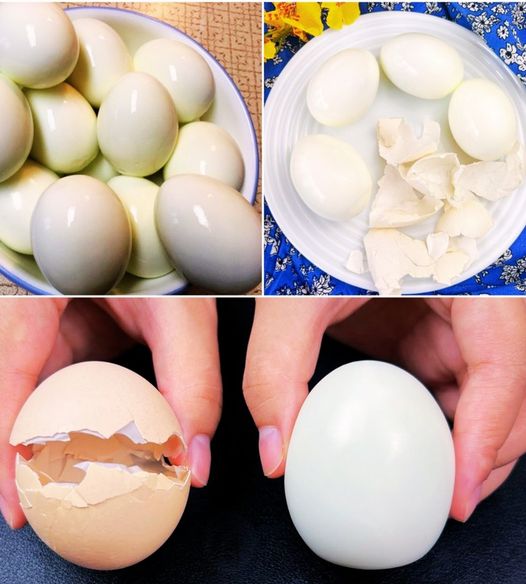
Cooking eggs may seem like a basic skill that every chef should possess, but perfecting this technique can be challenging. The perfection is in the details—from the temperature of the water to the cooking time—which work together to shape the egg to your preference, whether soft, medium, or hard-boiled. Understanding and mastering these details can mean the difference between an average egg and a culinary masterpiece.
Preparations
You need:
- Fresh eggs
- A jar with a lid
- A bowl of ice water
- a timer
Preparation:
Start with eggs that are finished room temperature .

Using room temperature eggs is crucial as it reduces the chance of cracking due to sudden temperature changes when placed in the boiling water.

This may seem like a small detail, but it can significantly affect the integrity of your boiled eggs.
Cooking Process
Bringing water to the boil:
Fill the pot with enough water to completely submerge the eggs and bring the water to a boil over high heat.
It is important that the water boils completely before adding the eggs to ensure consistent cooking results.
Add eggs:
Once the water boils, turn the heat down so that the water continues to boil gently and does not bubble too wildly.
Then use a spoon to break the eggs one by one careful to be lowered into the water.
This helps prevent the eggs from bumping and cracking against each other or the side of the pot.
Determine cooking time:
- Soft-boiled eggs: 4-6 minutes
- Medium-boiled eggs: 6-9 minutes
- Hard-boiled eggs: 10-12 minutes Cooking time depends on your personal preference for the texture of the egg. The size of the eggs and the height at which you cook also play a role. Higher elevations may require longer cooking times.
Cooling eggs:
Use a slotted spoon to quickly remove the eggs from the boiling water and immediately plunge them into a bowl of ice water.
This sharp contrast in temperature stops it cooking process immediately and also helps loosen the shell, making peeling easier.
To peel:
After about 5 minutes in the ice water, the eggs will be cool enough to handle.
Start by peeling under lightly running water, which helps to rinse away the shell fragments and provides a clean, smooth finish to the egg.
Type
Freshness: Use fresh eggs for the best quality and texture, but choose eggs that are several days old for an easier peeling experience.
Consistency: By being consistent in your cooking method and timing, you can expect the same results every time.
It’s worth experimenting until you find your ideal settings.
Save: Boiled eggs can be kept in the freezer for up to a week refrigerator.
Store them in their shell to ensure maximum freshness.
Cooking the perfect egg is a skill that requires both precision and adaptability.
By following the techniques in this guide, you can enjoy excellently cooked eggs every time.
Main points of the article: ” 🍳 Learn the correct way to make boiled eggs without adding cold water directly into the pot! 🥚💧” – listed:
- Use room temperature eggs to prevent cracking.
- Cook the eggs in gently simmering water to ensure an even texture.
- Adjust cooking time based on size and height.
- Quickly cool the eggs in ice water to stop the cooking process and make peeling easier.
- Store boiled eggs in their shells in the refrigerator to maximize their freshness.
Share now: 🍳 Learn the correct way to make boiled eggs without adding cold water directly into the pot! 🥚💧

Leave a Reply